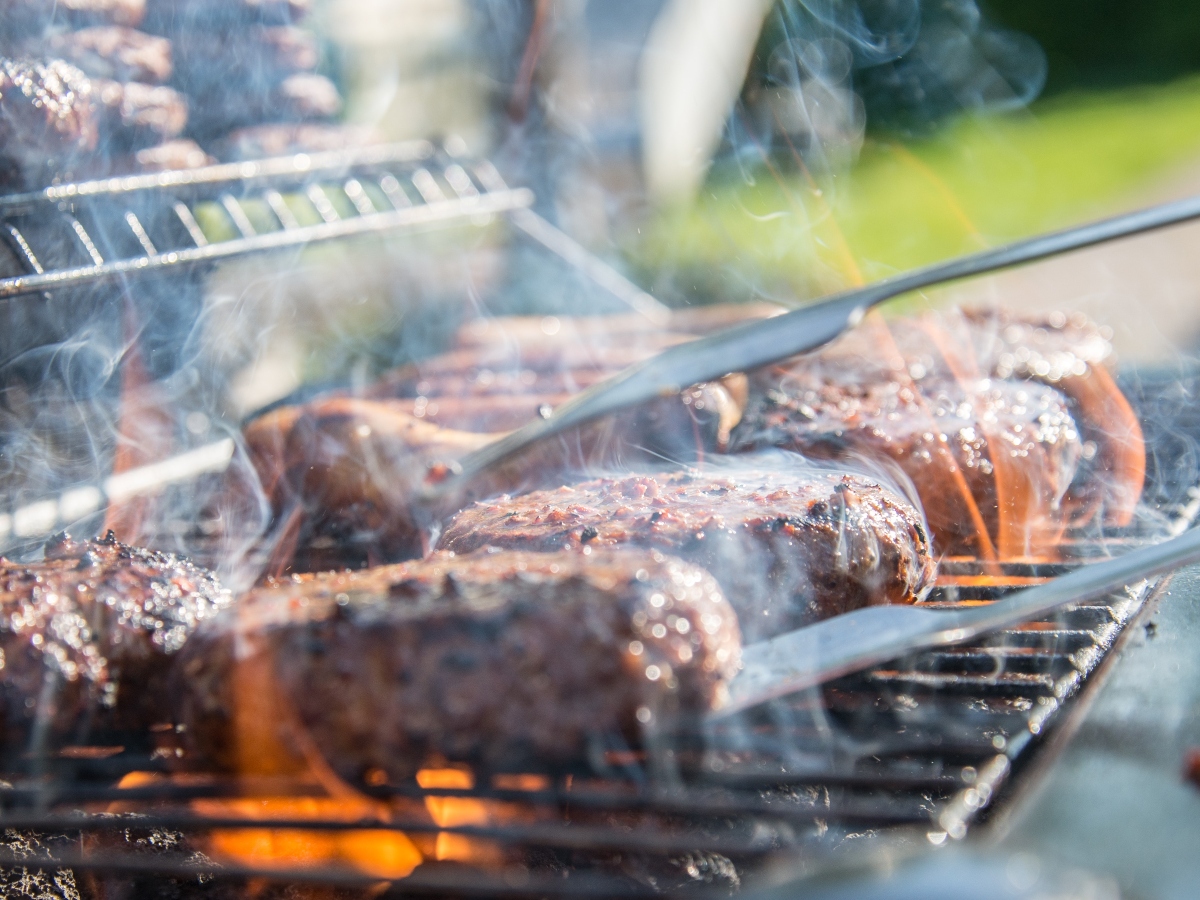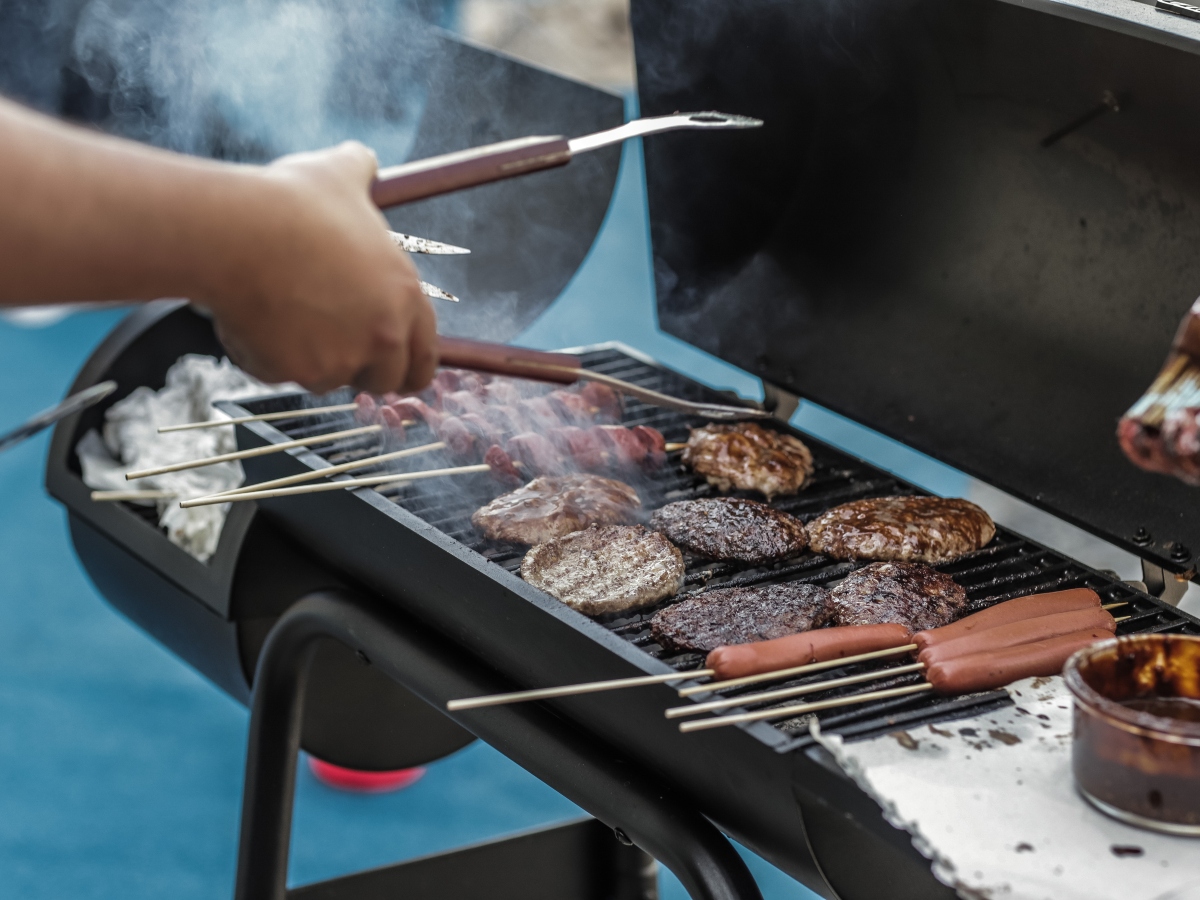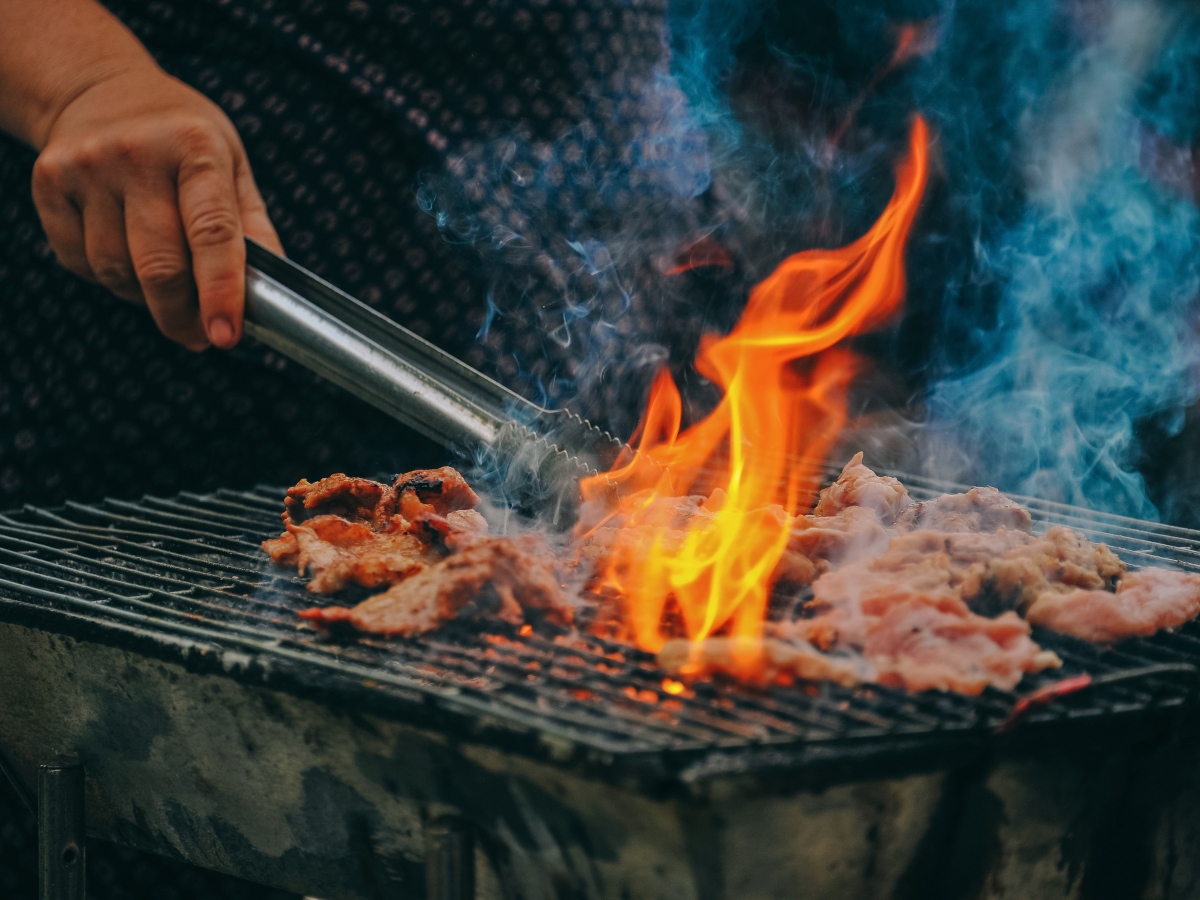According to the National Fire Protection Agency, there are approximately 8,900 home fires and 19,700 injuries related to grilling accidents. Structure fires comprise about 3,900 of the 8,900 grilling fires each year, and outside or unclassified fires make up around 4,900 of the reported fires. Thermal burns make up about half of the 19,700 grilling injuries. Approximately 2,000 contact burns per year are from children aged five or younger. According to the National Fire Protection Agency, 70% of adults own grills or smokers. With a large number of people owning grills and smokers, it is important to know some safety tips to prevent grilling-related fires and injuries. Keep reading for safety tips and frequently asked questions about grilling and grilling safety.
Grilling Safety Tips
Here are some safety tips to keep you accident-free, at least where grilling is concerned.
Follow the Three-Foot Rule
The Federal Emergency Management Agency recommends keeping at least three feet of space between your grill and your house or any other structure that could catch on fire. This includes walls, fences, bushes, plants, or patio furniture. Another three-foot recommendation is to have a three-foot zone around the grill. This means having a rule in place that no one is allowed within three feet of the grill to keep other people, animals, and objects safe from contact burns.

Only Use Your Grill Outside
Never use your grill inside a building. You need plenty of airflow and ventilation to keep you and your house safe. If you grill inside, you are risking fire hazards and the air quality of your home.
There are two different types of grills: charcoal and gas. A charcoal grill uses charcoal and can let off harmful chemicals that can hurt your health if you use your grill indoors. Gas grills use propane, which can be harmful if there is not an adequate amount of space and ventilation.
It is important to be careful with propane because it doesn’t have a lasting smell. You can inadvertently poison yourself without knowing it, especially if you use your gas grill inside the house. Along with the bad air quality, grilling indoors is a bad idea because there are more things at a closer range that could catch on fire. Always grill outside with plenty of space around the grill with lots of airflow and ventilation to keep you and your house safe.
Open the Grill Before Lighting
Some people choose to light their gas grill before they open the lid. Lighting the grill with the lid closed can be dangerous. The gas can build up in the chamber, and if you are not careful, it could cause an explosion. To prevent this from happening, always open the grill first and then light it.
Don’t Leave the Grill Unattended
Just like you shouldn’t leave any open flame unattended, it is never a good idea to leave the grill unattended. Things can catch on fire in a blink of an eye. If you aren’t there to catch it, a fire could quickly spread out of control. If you need to step away, make sure someone else is there to keep an eye on the grill. In the event that no one is there to take your place, make sure to shut off the grill so as not to start an accidental fire.
This is one of the biggest ways to prevent a grilling accident from occurring, and perhaps the most common cause of grilling fires and accidents.
Clean After Each Use
Another often overlooked grilling safety tip is cleaning the grill after each use. Baked-on grease can be a huge fire hazard if you don’t keep it clean. Cleaning the grill after each use prevents grease and food from getting caked on and feeding any potential fires or explosions.
Many sources say you can go for several uses without cleaning the grill, but the best practice to prevent an accidental fire is to clean the grill plate every single time. A clean grill can make the difference between a delicious barbecue and a house fire.
Dispose of Coals Properly
Along with keeping the grill clean at all times, it is important to dispose of your coals properly. The Federal Emergency Management Agency recommends letting your coals cool and then putting them in a metal container with a lid. Once your container gets full, make sure the ashes are completely cold and then dispose of them with the trash.

Does Homeowners Insurance Cover Grilling Accidents?
The main way to prevent the financial and medical issues that a grilling accident could cause is to take the precautions mentioned above. Although prevention is the key to avoiding these types of accidents, sometimes accidents still happen. If you have been a victim of a grilling accident, it is important to check your insurance policy to see what it covers. Most home insurance policies cover fires, so if you had a grilling fire, you would be covered financially.
Here are some of the steps to take if you encounter a grilling accident:
- Grab a fire extinguisher
- Call 911 if needed
- Assess for injuries
- If any injuries have occurred, get emergency care right away.
- Assess damage
- File a claim as soon as possible with your insurance company
Although most insurance companies and home insurance policies cover fires, you still might want to double-check with your insurance company to be sure.
Frequently Asked Questions About Grilling Safety
Here are some frequently asked questions about grill safety and our answers to those questions.
Which is Safer, Charcoal or Gas?
As far as safety goes, charcoal and gas grills are both relatively safe as long as you follow the precautions mentioned above. Although both types of grills are pretty safe, it is controversial as to which one is healthier. If you are looking to see which is safer as far as health goes, most sources claim that gas grills are healthier due to the particles from the charcoal getting into the food.
Where is the Best Place to Set up My Grill?
There are many places you can put your grill for it to be considered safe. The best place to set up your grill is at least three feet away from any structures and on a flat surface. If your grill is on an uneven surface, you risk the grill tipping over. This could easily cause a fire that could get out of control quickly. If the grill is closer than three feet from a structure, the structure can get very hot and is at a higher risk of catching on fire.
Are Public Grills Safe to Cook On?
As long as you properly clean the grill before using it, public grills can be just as safe as one that is privately owned. All you need to do is clean off any residue that might be on the grill and clean out the old coals, and you are good to go.
How Often Do I Need to Clean My Grill?
It is recommended to clean your grill after every single use. This is to ensure that the grease and food residue doesn’t build up too much, increasing the risk of starting a fire or explosion.
How Do I Clean My Charcoal Grill?
- Allow the grill to cool down.
- Dump the cooled ashes into a metal bucket or container with a lid.
- Use a grill brush to brush away any grease and food residue.
- Wipe down the grill with a rag.
How Do I Clean My Gas Grill?
- Make sure the grill has cooled down but is still warm to the touch.
- Use a grill brush to dislodge any grease and burnt food residue.
- Give the grill a good wipe-down with a rag
- Clean heat deflectors after every three to four uses.
For more information about grill cleaning, visit The Spruce at thespruce.com. They have various cleaning tips with lots of information on the best ways to clean different parts of a grill and how often you should clean each part.
We are Here to Help
Here at ONIT Home, we specialize in demystifying and simplifying home services. We specialize in six different industries of home services, including insurance, security, solar, roofing, water treatment, and concierge. For more information on our home insurance services, contact ONIT Home. You can visit our website at https://www.onithome.com/insurance/homeowners-insurance or call us at 1-833-433-0331. Stop by our website or give us a call today.


